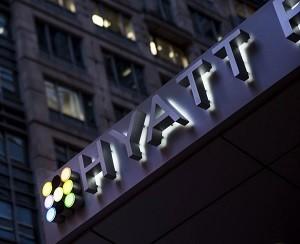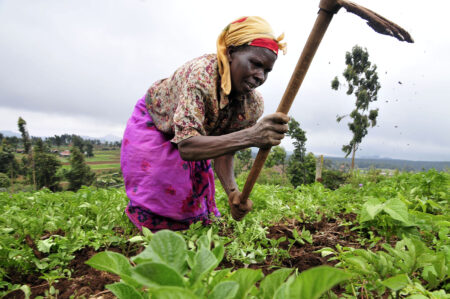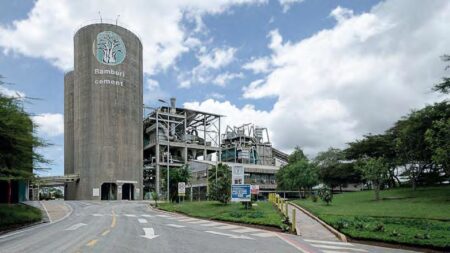As hotels in East Africa are closing their doors as the effects of the global pandemic continue to bite, Tanzania is making moves to ward off the negative effects of Covid-19 by resuming business as usual, including in its tourism and hospitality sector.
In fact only this past week, Tanzania has announced that it will host its first Mafia Island Tourism Exhibition Week. The ambitious and bold move is in line with other measures that the country is taking to revive its tourism sector.
The country has already set aside millions of dollars to improve tourists experience at one of its major attractions, Mt Kilimanjaro. Tanzania has set aside money to cut out a new route to climb the mountain. This new route is exclusive for VIP tourists and other VIP personnel and is expect to boost tourism in the region.
Also Read: Tanzania’s Tourism Board unveils luxury route to scale Mount Kilimanjaro
Further still, it is now almost three weeks since Tanzania reopened its airports and allowed flights in and out of the country. All of these efforts are of course done with caution, for example all persons fling into the country are expected to have medical reports and undergo check-ups before been allowed into the country.
Even the hotels and tourist lodges have devised a new system to safe guard their clients and staff. Each business is required to display a health certificate that shows the premises is Covid-19 free and they are to also assign trained employees to monitor global trends of the disease.
That is not the case across the border in Ethiopia for instance. Hotels in Ethiopia are facing growing employee complaints over delayed or cut salaries. Ethiopia media reports that, Monarch, a top brand, has been facing numerous complains at the Federation of Hotel & Tourism Service.
Also Read: Tanzania energy prospective, tough ground to break for local content
The Hotel, which has over 160 staff is operating at less than a seven percent it maximum occupancy rate has resulted to increasing the price of food by 10 percent. At that rate, the hotel management admits to media that “…it’s getting to the point where running this Hotel can’t be sustained for more than two months at this level of business.”
Another Ethiopian hotel, Swiss Inn Nexus Hotel, has been forced to chop down employee salaries b up to 40pc, that is almost half their basic salary, and so on and so forth. Hotel after hotel, the story is the same, if Ethiopia does not adopt similar measures as Tanzania, its hotel and tourism sectors will suffer tremendous losses.
Local media in the country says the Addis Abeba Hotel Owners Trade Sectoral Association, which has 150 hotels under its wing supporting 18,000 employees, has put out a loan request from the government, but the loan is yet to come through.
Also Read: A look at Foodledoodle, Kenya’s premier cloud kitchen
Meanwhile, the Ethiopian Hotel Professional Association, has made public that 14 hotels in the country are effectively laying off employees, and are waiting on the said bailout that is yet to come.
On the other hand, authorities in the countr say, the discrepancy between hotel owners and employees is actual wrought by the announced bailout. On one hand you have employers cutting salaries or not paying all together, while on the other hand, you have public announcement of ‘approved’ sector bailout.
“We’ve come to realize the issue lies with the money not being released to the hotel owners,” local media quotes Leulseged Mesele, the president of the Association.
“When employees hear a stimulus package is released, they think its automatically in the accounts of the hoteliers,” and so the query goes.
Ethiopia ma consider following Tanzania’s steps for its hospitality and tourism industry by issuing its own Standard Operating Procedures (SOPs) for the two sectors.
For Tanzania for example, through the SOPs, it is now a requirement of all hospitality and tourism facilities to hire and train a Covid-19 Liaison Officer who will in turn be the key person to contact with the Health Ministry.
This Liaison Officer will be expected to stay on top of all new developments in regards to the Covid-19 daily updates as released by health officials in and out of the country and this too will be part and parcel of the facility’s SOP.
Further still, as part of the proposed SOPs, all arriving flights are required to have an Advance Passenger Information System (APIS) so as to allow the Tanzania’s Immigration Department and Airport Authorities to receive and interrogate the flight manifest for possible high-risk passengers.
Also Read: Billions to be won by Tanzania: Tourism and Magufuli’s unchartered terrority
Only last year, Ethiopia stood at the top of East Africa’s hotel scene. A report titled “Ethiopia Leading in Hotel Development in East Africa” notes “…hotel development projects in Ethiopia are almost 50 percent higher from last year (2018), according to a new report, leading East Africa on this front.”
Now just one ear later, Ethiopia is struggling to keep its hoteliers employed et massive investment has gone into the sector from both the government and the private sector alike. For example, in the report, it is noted that; “…to encourage hotel and toursim development, the Ethiopian government has been giving various incentives to developers for many years, including tax-free import of building materials and furnishings.”
And “…Hilton is deploying part of its USD 50 million Hilton Africa Growth Initiative to help fund growth in the region. The company has seen a 51 percent growth in its pipeline.”











